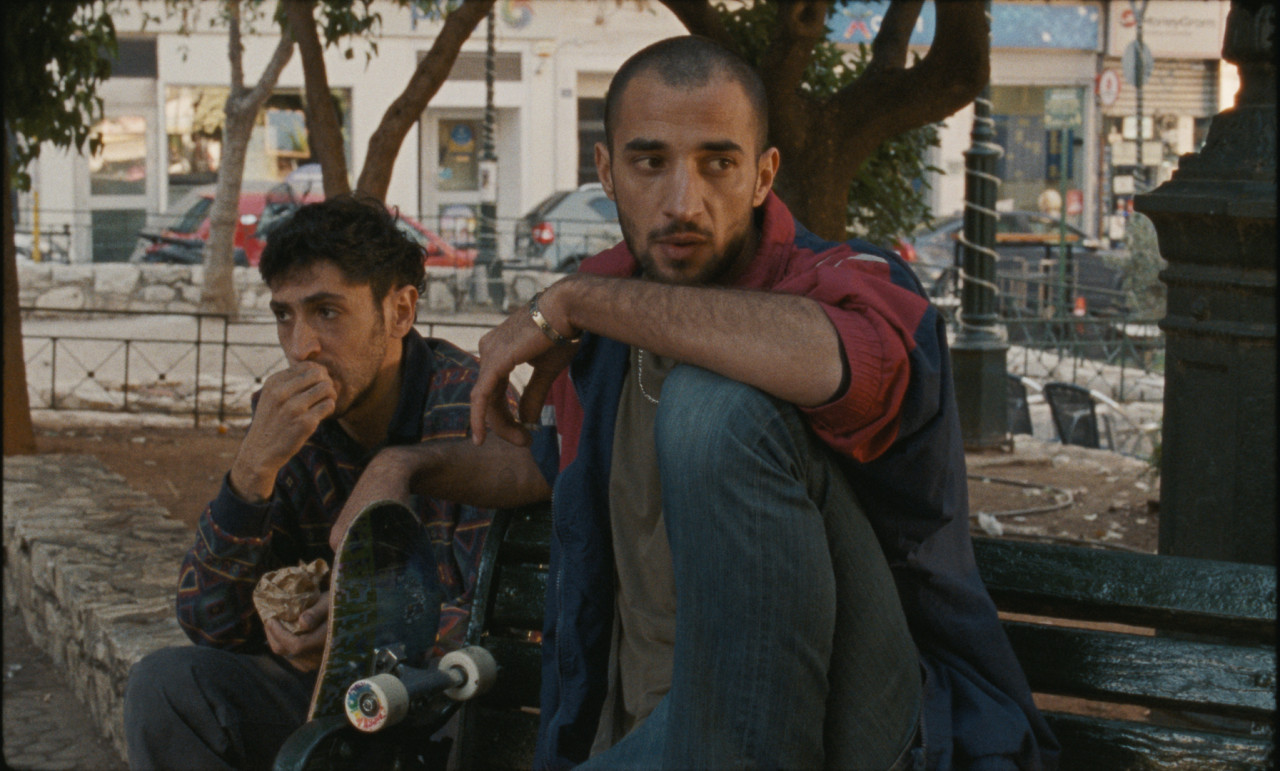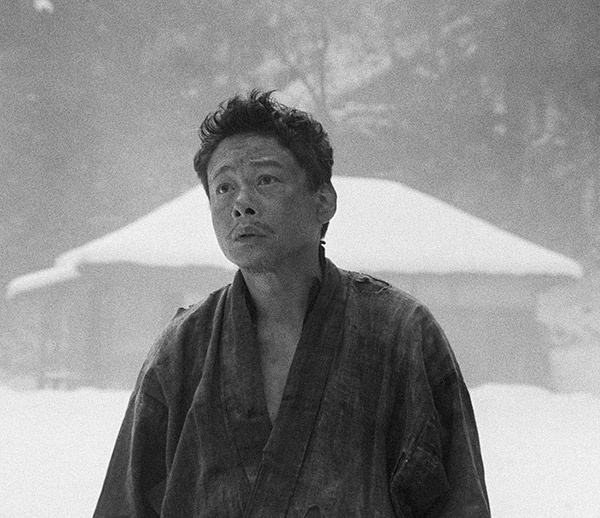
The brilliant Palestinian-Danish documentarian Mahdi Fleifel (“A World Not Ours”) leaps successfully into fiction with a feature debut that borrows a narrative container from “Midnight Cowboy” and a tormented soul that is all Palestinian.
The film opens with a quote from the celebrated Palestinian scholar, Edward Said: “In a way, it’s a sort of fate of Palestinians not to end up where they started, but somewhere unexpected and far away.” These words have been cutting since the moment they were first spoken years ago, but released into the world now during the horrific conflict in Gaza, they have an extra, desperate bite, as another generation is forced to seek displacement as the only alternative to violent death. Premiering at Cannes in this climate, Fleifel’s portrait of two individual characters asks questions that cannot be confined to the screen. Where do you belong after you have been driven from your homeland? When your existence is criminalized, how can the laws of so-called civil society apply?
Fleifel drops a pin in Athens, Greece, which represents limbo for Palestinian cousins, Chatila (Mahmood Bakri) and Reda (Aram Sabbah). They have previously made it out of a refugee camp in Lebanon only to find themselves so near but yet so far away from their desired destination of Germany. “To a Land Unknown” is a social realist drama buoyed by two gorgeous central performances, a nuanced portrait of a mercurial male relationship told with assurance and steel. Irrespective of how fully and tenderly the characters are drawn, destiny is written in still bolder strokes.
Fleifel matter-of-factly drops us into a life of low-level criminality. The cousins are bag-snatching and shoplifting, saving up to buy ID papers and transport to Germany via a blackmarket kingpin. Why Germany is supposed to be a promised land is a moot point, it has simply been nominated as such — just as Moscow was for Chekhov’s “Three Sisters,” Florida was to Joe and Ratso in “Midnight Cowboy” and The Great Valley was to Littlefoot in “The Land Before Time.” The audience is in on the suspicion that the problems here will likely exist there, and the dramatic irony is amped up in this particular context, as Germany has been draconian in clamping down on Palestine solidarity.
But the cousins don’t know this. Once in the promised land, Chatila plans to send for his wife Nabila and their 3-year-old child, as both are currently still in the refugee camp in Lebanon. They will open a cafe in an Arab-friendly district. Nabila will cook. Chatila will have an office with a big ashtray. Reda will be the barman and the first face that customers see. It is a beautiful, tragic, expressive face, with long eyelashes and a drooping sadness. He is both Chatila’s closest ally and his biggest liability, for he acutely feels how far they are sliding from a “normal” life and has a bad habit of spending their hard earned cash on heroin relapses.
A taut script, co-written by Fleifel, Fyzal Boulifa, and Jason McColgan, wastes no time in setting up the story and the stakes, while also tending to the details of their lives. An over-populated squat in Athens may not be a home, but there are still traces of the home that these men bring wherever they go. Mint tea steams, potatoes fry, Reda sleeps half-naked with a tattoo the shape of Palestine visible on his torso. Bakri and Sabbah bristle with life. In contrast with Reda’s hangdog melancholy, Chatila is vitality itself: a steaming force of focused energy that explodes in frustrated cruelty when someone gets in his way.
These two performers feed off each other in a dance that is never static. They are from the same place, they want the same things, they forgive each other because who else could they find to fill that same role. Unlike in a million rote and gritty thrillers of yore, there is no scarcity of love in this picture. What makes “To a Land Unknown” so powerful is its fulsomely written and inhabited male characters.
One morning, in the square that they use to stake out marks, they meet Malik (Mohammed Alsurafa), a plucky boy from Gaza who wants to make it to Italy to be live with his aunt. Later on in the same day, Chatila meets a Greek woman, Tatiana (Angeliki Papoulia), who is a little lost, a little attracted to him. She sees in him what he is too busy surviving to notice: that he is young and beautiful. He sees in her the citizenship that means she can travel freely.
As in “A World Not Ours,” no scene is simply existed as a way to move from A to B, texture is the means and the end. After Malik helps Reda with selling on some stolen trainers, the two munch on sandwiches. Between mouthfuls, Reda impresses upon him that stealing is wrong and that he will have a normal life. Everything that happens in Athens is not supposed to count, it is supposed to be a wipe cleanable “before” time. “It is just a phase, it will be nothing but a memory,” Nabila tells Chatila over the phone. This is the line they tell each other. Sometimes they even believe it.
The film is in constant negotiation with how much suffering we can mete out and take in before our soul collapses, like soggy cardboard. After a semantic discussion on whether “helping a boy” and “people smuggling” are the same thing, the film decides that both are true and, furthermore, that both will happen. So, the wheels are set in motion to smuggle Malik into Italy, first securing Tatiana’s help. Her character is full of its own soft and hard places, she sees through Chatila and still consents to do what he wants, partly out of desire, partly through the lack of it and partly because she has negotiated a cut of what Malik’s aunt will pay. No character is presented in a straightforward light. Fleifel understands that people are teeming masses of contradictions. No one is wholly good or wholly bad, although the most sensitive amongst us cannot stand the way the most calloused amongst us can be.
The film presents illegal endeavours without excuses, save for context. The tragedy for these characters in is that there is no way out but through. “You know, when you start treating people like animals, they start eating each other,” says Reda. With the cousins’ people smuggling operation in motion, the already-focused story pares right down and the gripping and heartrending third act unfurls.
Fleifel masterfully tees up the characters and their high-stakes job to the point that one cannot advance without impactful implications for the other. There is pain in store for a new group of people who have already experienced more than their fair of share of it, but this is just a byproduct of the story moving forward, according to its own unstoppable engine. “To a Land Unknown” is a tour-de-force of empathic storytelling, with its genre narrative bursting with an overabundance of humanity. The unexpected, far-away place that Said references is expressed fully, as both a geographical reality and a soul in exile.
Grade: A-
“To a Land Unknown” premiered at the 2024 Cannes Film Festival. It is currently seeking U.S. distribution.





